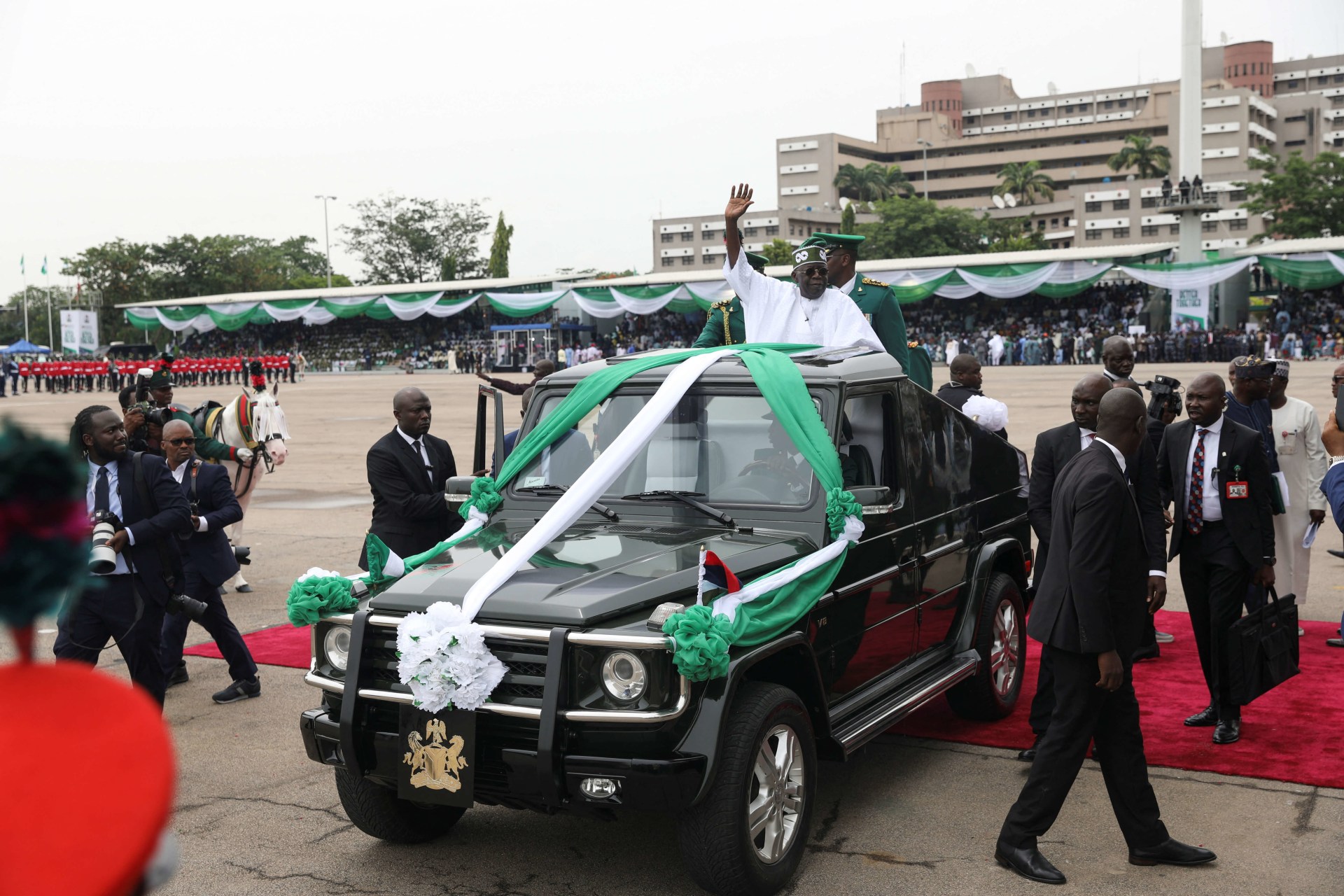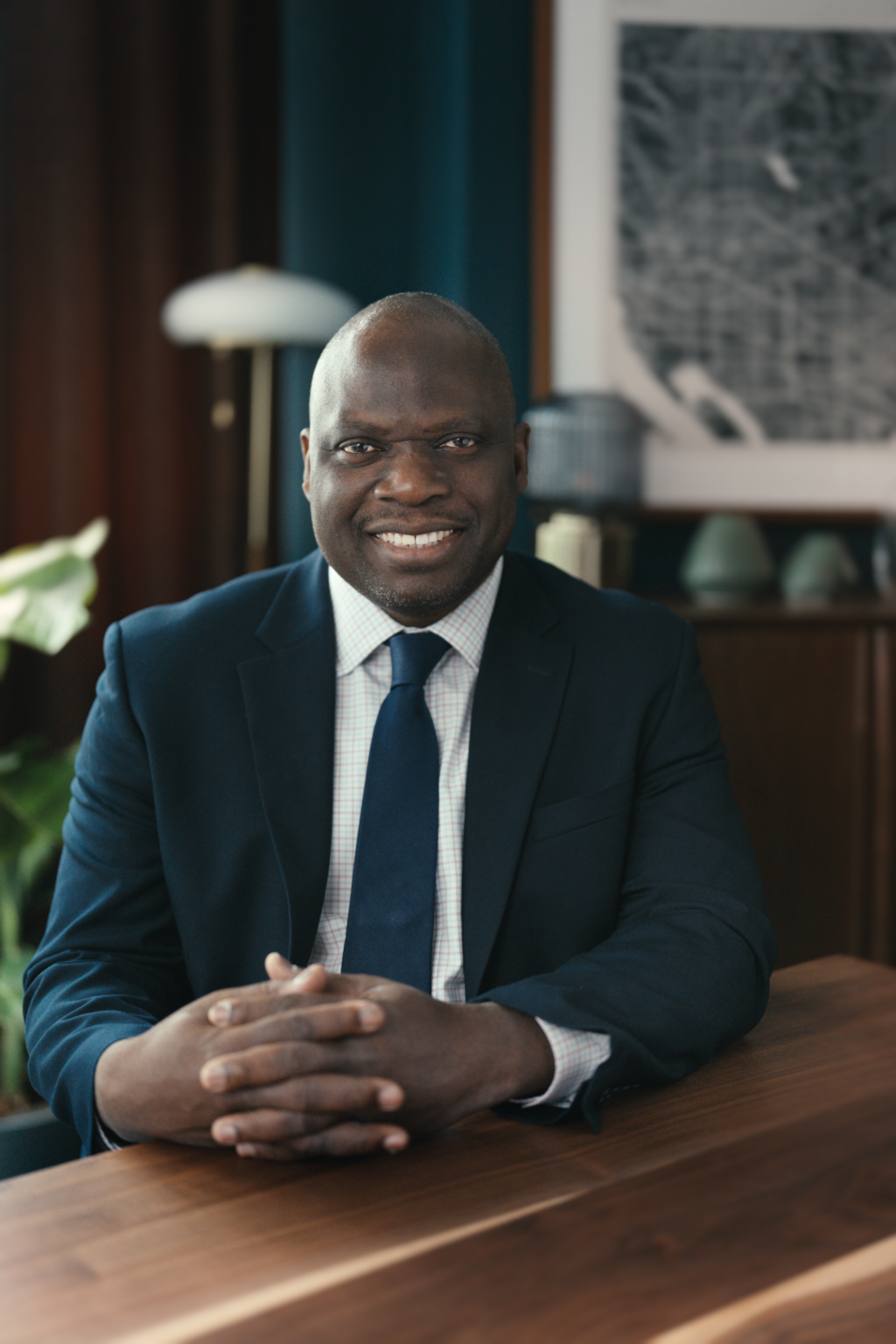A Troubling Picture
Nigerians are increasingly frustrated at the growing disconnect between the political class and ordinary people.

By experts and staff
- Published
Experts
![]() By Ebenezer ObadareDouglas Dillon Senior Fellow for Africa Studies
By Ebenezer ObadareDouglas Dillon Senior Fellow for Africa Studies
Whatever else happens in the rest of his term of office, those informed in such matters will be eternally grateful to President Bola Tinubu for pulling the plug on the oil subsidy regime, a trough at which the Nigerian political class irrespective of party affiliation had gorged for as long as anyone can remember. Ordinary Nigerians may justify access to cheap gas on the presumption that it is the least that the citizenry of an oil-producing country is entitled to, but even those who may have found the mathematical nitty-gritty too complex to digest needed no persuasion that an arrangement whereby a handful of individuals made out like bandits from illegal exportation to the country’s neighbors was unsustainable.
In the same spirit, the unification of the official and parallel market rates was, if not exactly genius, the right thing to do, and foreign investors and market watchers were altogether justified in singing the then-new administration’s praise. The subsequent announcement of a student loan program for indigent students confirmed the early impression that Tinubu had a clear plan of action, and seemed to know where the shoe pinched for the average Nigerian.
Measured by this initial euphoria, the last few months have been nothing short of anticlimactic. Not only does the Tinubu administration look increasingly sterile, but more alarmingly, it seems to have adopted the worst habits of its predecessors, combining a painful lack of direction with a poverty of integrity. While the president and leading officials of his administration have not missed an opportunity to remind Nigerians of the country’s straitened economic circumstances and the ensuing need for belt-tightening, there is little indication that they are willing to submit themselves to the same austere regime.
The lingering furor over a 2.17 trillion Naira Supplementary Appropriation Act, passed with uncharacteristic speed by an otherwise ponderous National Assembly, seems to encapsulate this patent double standard. Unsurprisingly, ordinary Nigerians have bristled at the allocation of millions of dollars for the presidential air fleet, a presidential yacht, bulletproof cars for the president and his wife, “renovation” of the official residences of the president and vice-president, and sport utility vehicles (SUVs) for lawmakers (over $150,000 dollars per automobile for 460 legislators) at a time when the minimum monthly wage for a federal civil servant in the country is less than forty dollars. Among other absurdities, commentators have pointed out that the $38 million dollars set aside for the presidential air fleet was more or less the same amount set aside for the student loan program until public outcry forced the government to supplement the latter with the money earmarked for the presidential yacht. In the meantime, the presidential yacht has run into its own shoal of controversy, with the government and the naval authorities seemingly unable to agree as to whether the yacht actually belongs to the “presidential fleet” or the Nigerian Navy, whether it has been purchased or not (every successive speaker has told a different story), and, if indeed it has been purchased, its whereabouts.
Growing indignation at the administration has issued from three not unrelated sources: members of the general public infuriated at the perceived chasm between the asceticism that administration professes and the prodigality that it practices; members of the political opposition who have never accepted the administration’s legitimacy and now have additional reasons to doubt its probity; and finally, those who, citing his record as Lagos State Governor, continue to believe in Tinubu’s capacity to govern but worry that he has failed to surround himself with the right people. For the latter category of critics, the charge by the opposition that the president has reflexively drawn on people he has known from his Lagos days belies the fact that he does not even seem to have chosen the best from Lagos.
The criticism is not unmerited. Outside a handful of household names like Finance Minister Wale Edun, Central Bank of Nigeria (CBN) Governor Olayemi Cardoso, Health and Social Welfare Minister Muhammad Ali Pate, and a few others, Tinubu’s bloated cabinet is strikingly bereft of first-rate talent, with too many selections seemingly dictated by political expediency. All of this in a country with perhaps the greatest concentration of human resources in the continent, as evidenced by the excellence displayed by Nigerian professionals and experts across the world. Seemingly cobbled together with the sole objective of defying the country’s enormous human resources, Tinubu’s cabinet would compete for the least inspiring since Nigeria’s return to democratic rule in 1999. While he cannot be accused of being provincial like his immediate predecessor, not unlike Buhari, Tinubu does not seem to give priority to ability, a tendency most vividly highlighted by the perplexing decision to deselect former Kaduna State Governor Nasir El-Rufai, especially having previously given the latter the greenlight to assemble a team of technocrats to sanitize and modernize a notoriously corrupt Ministry of Power.
Whereas political expediency can be excused, it is the seeming lack of a clear direction that many find unforgivable. If there is one thing that sets Tinubu apart from previous Nigerian presidents since the inauguration of civilian rule in 1999, it is that he has had designs on the nation’s top position from the very beginning, and hence cannot have been surprised by the enormity or complexity of the challenge. Yet, if the president has had a longer period of contemplation than others, so far, there has been little evidence of it. On one hand, his ministerial selections have ranged between the plain uninspired and the outright mystifying. On the other, he has struggled to elaborate a cogent and convincing vision, fueling the growing suspicion among the public, including increasingly among those who swear by his name, that he is more interested in ‘enjoying power’ than rising to the demands of the office. After an initial period in which Tinubu appeared to have the security situation in his sights, things have decidedly taken a turn for the worse, with bandit attacks on villages and communities almost a daily occurrence. The National Security Adviser, Nuhu Ribadu, seems not fit for purpose, and has looked out of his depth in both private and public appearances.
In his defense, Tinubu has only been in the saddle for all of six months, a good chunk of which has been spent dealing with the legal battle over his election and the ensuing uncertainty. A measure of tentativeness may be rightly expected of any administration similarly burdened, especially one that emerged from the aforesaid travails legally intact but morally wounded. While this may be true, it does not excuse the apparent lack of plan, and the heedlessness and obstinacy with which the administration has responded to the yearnings of everyday Nigerians.
To be sure, the problem being discussed here goes beyond Tinubu. The complaint that those in power continue to live large while regular people manage to get by, and that democracy is nothing but a disguise for a systematic run on the treasury by leaders with no social conscience is often heard across Africa, most recently in West and Central African countries where the military has forced elected governments out of power.
It would be a colossal tragedy if, on the watch of someone of Tinubu’s pedigree, a combination of elite indulgence and inconsiderateness were to expose Nigeria to similar dangers. Tinubu cannot afford to let popular disenchantment fossilize into apathy toward democratic rule. Unfortunately, the tribe of those who believe he has what it takes to right the ship and chart a new course is dwindling by the day.
Reina Patel contributed to the research for this article.
